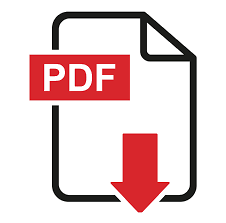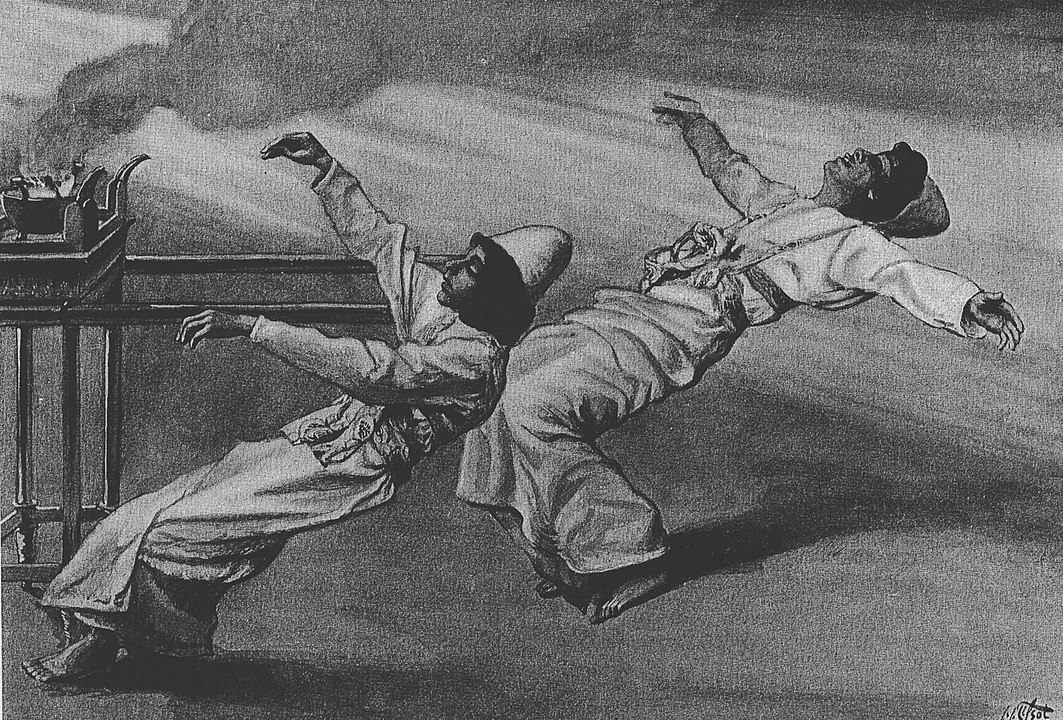
Shemini – Parasha Pointers
- The inauguration of the Mishkan took eight days [Lev. 9:1]. It is interesting to consider the appearances of cycles of seven and eight in the biblical calendar and in events and rituals.
- The number seven appears in: the creation of the world, Shabbat, Pesah, seven weeks leading to Shavuot, Shavuot itself, Sukkot, the seven-year Shemita cycle, and seven times seven years leading to the jubilee year. It also appears in many sets of sacrifices, blood-sprinkling on the altar, and the seven branches of the Menorah.
- The number eight appears in: Brit Milah, the inauguration of the Mishkan, Shemini Atzeret, and the purification process of the leper.
- Nadav and Avihu, the sons of Aharon, are struck and killed for bringing an alien fire [10:1-2]. The commentators debate the reason for their punishment. The following paragraph is a warning against entering the Mishkan while drunk [10:8-11]. It seems that Nadav and Avihu were drinking wine to achieve a joyous state of mind. Using external substances for such a purpose is detrimental and dangerous. The spiritual experience should be internal and not one which is achieved by substance abuse.
- This also explains why the warning against serving in the Mishkan while drunk is followed by this description of the Kohen’s role: Distinguish between the holy and unholy, the pure and impure, and teach the laws of God to the Israelites. The power of distinction evaporates when one is drunk, and the drunkard cannot be an educator or an inspirational guide, which is the principal purpose of the Kohanim.
- Aharon and his surviving sons are instructed to carry on with the inauguration and let the rest of the nation mourn the death of Nadav and Avihu [10:6-7] This seems very harsh, and there is no doubt that it required a tremendous sacrifice for Aharon and his sons to obey that order. This perhaps could be analogized to an extremely important mission in which some of the crew members lost their lives. The survivors must keep the momentum and bring the mission to fruition.
- Moshe loses his temper and rebukes Aharon for not eating the meat of a certain sacrifice. Aharon calmly responds that in light of the tragedy that befell him, eating of that sacrifice would be inappropriate. Moshe accepts Aharon’s explanation [10:16-20]. We learn for this that even when the program is created by God, there is room for last-minute changes made by people on the ground.
- In chapter 11 [1-47] we have an extensive list of kosher and non-kosher animals. Keeping the laws of Kashrut helps us in several ways. We are aware of what we eat and inquire about its origin. We learn to delay gratification [see The Marshmallow Test, by Walter Mischel]. Sparing some of the non-kosher animals is also important for the ecology since they are nature’s sanitary corps.
Questions on Parashat HaShavua
שְׁאֵלוֹת לְפָרָשַׁת הַשָּׁבוּעַ: שְׁמִינִי – שַׁבָּת פָּרָה
This week we also read Parashat Parah, which explains how to become pure. We read this Parasha on the Shabbat after Purim because people were preparing to go to Beth HaMikdash. Part of that preparation was to become pure.
- What happened on the eighth day?
- What did Moshe and Aharon do on that day?
- A fire came from heaven to the altar. What did it show the people?
- What did Nadav and Avihu do?
- What happened to them?
- HaShem warns Aharon and his other two sons not to drink wine when they come to serve in the Mishkan. Why?
- The Torah lists kosher and non-kosher animals. What are the signs of a kosher animal?
- Can you name three kosher animals?
- Can you name three non-kosher animals?
- What are the signs of kosher fish?
- Can you name three kosher fish
- What are the signs of kosher birds?
- Can you name three kosher birds?
- What is common to most non-kosher birds?
- Which eggs are we allowed to eat?
- Why did HaShem give us the laws of Kashrut?
Answers for Parashat HaShavua
- The Inauguration, the official dedication, of the Mishkan.
- Aharon brought sacrifices, and he and Moshe blessed the people together.
- That HaShem has accepted their sacrifices.
- They brought their own fire to the altar.
- They died.
- Because the Cohen should serve in the Mishkan with a clear mind. Wine causes people to be drunk and confused.
- Kosher animals have split hooves and they chew their cud.
- Cow, ram, sheep.
- Camel, pig, rabbit.
- Kosher fish have scales and fins.
- Salmon, red snapper, tuna fish.
- The signs are not mentioned in the Torah but we have a tradition of which birds are kosher.
- Chicken, turkey, quail.
- They are birds of prey.
- We are allowed to eat the eggs of kosher birds, but not the eggs of non-kosher birds.
- We do not always know the reason for the laws of HaShem. We observe them because we obey HaShem’s word and we know it is good for us.








Ohr HaChaim Yomi – Emor